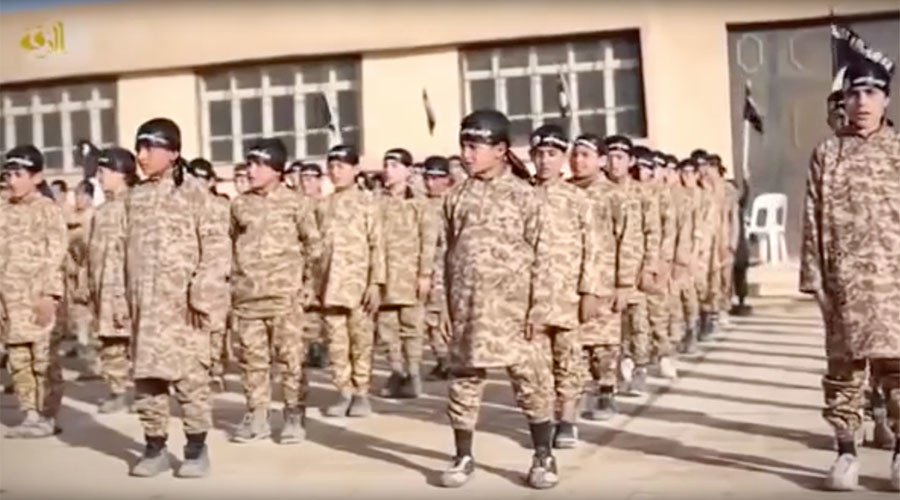
Turkish police have detained dozens of ISIS-connected suspects, among them 24 under the age of 18, who are being trained to operate in Syria and Iraq as Islamic State’s militants.
The Istanbul Anti-Terror Directorate has arrested dozens of foreigners in one of the districts of Turkey's largest city. Those detained are suspected of getting ready to transfer to areas of Syria in Iraq under Islamic State's control, the Turkish daily Vatan reports.
Detectives targeted some 18 homes in Istanbul's eastern Pendik district. Special operations teams supported by a helicopter simultaneously raided all the suspicious addresses.
The raids were part of the investigation into the massive terror attack that killed over 100 people in the Turkish capital, Ankara, on October 10.
Altogether 53 people have been detained, including 24 minors, all of them from the Central Asian countries of Tajikistan and Uzbekistan. The minors were brought to the Pendik Children's Bureau Headquarters, while most of the rest were summoned to the Anti-Terror Directorate headquarters for questioning. Many of those detained had entered Turkey illegally, authorities said.
The anti-terror teams say they have proof that the detained Tajiks and Uzbeks have connections to Islamic State (former ISIS/ISIL), finding maps of conflict zones in Syria and Iraq, as well as other documents, in their raids.
Turkish authorities believe that the suspects organized training for the 24 minors in the basements of the raided installations. The children were taught radical Islam, extremist ideology and rules for living in Islamic State-controlled areas.
Thousands of foreigners have joined Islamic State, which is currently estimated to have from 30,000 to as many as 200,000 fighters in its ranks. Up to 5,000 of them are believed to be Uzbek nationals, Vatan reports.
In August, the Islamic Movement of Uzbekistan (IMU), a terrorist organization founded in 1996, officially announced its voluntary dissolution and swore allegiance to Islamic State. Before that, it had been affiliated with Al-Qaeda.
Islamic State has never concealed the fact it uses children in its operations, organizing training camps for them, where they are trained to become jihadi fighters and even behead people.
#ISIS teaches children beheading techniques on dollshttp://t.co/Z6I1v56Uhzpic.twitter.com/WGURgFNPoi— RT (@RT_com) July 22, 2015
Turkey had opened its border with Syria in the beginning of the civil war there in an effort to help rebels fighting against President Bashar Assad's regime. This has reportedly allowed jihadist groups that rose rapidly in Syria to safely cross into Turkey to use it as a safe haven and resupply base.
After Ankara agreed to share its bases with members of the coalition battling Islamic State in July, ISIS released a video blaming Turkish President Tayyip Erdogan of aiding “crusaders” and their jets to kill the Muslims in Islamic State. The jihadists called Erdogan an infidel and urged Turks to rebel and conquer Istanbul.
Comments
Post a Comment